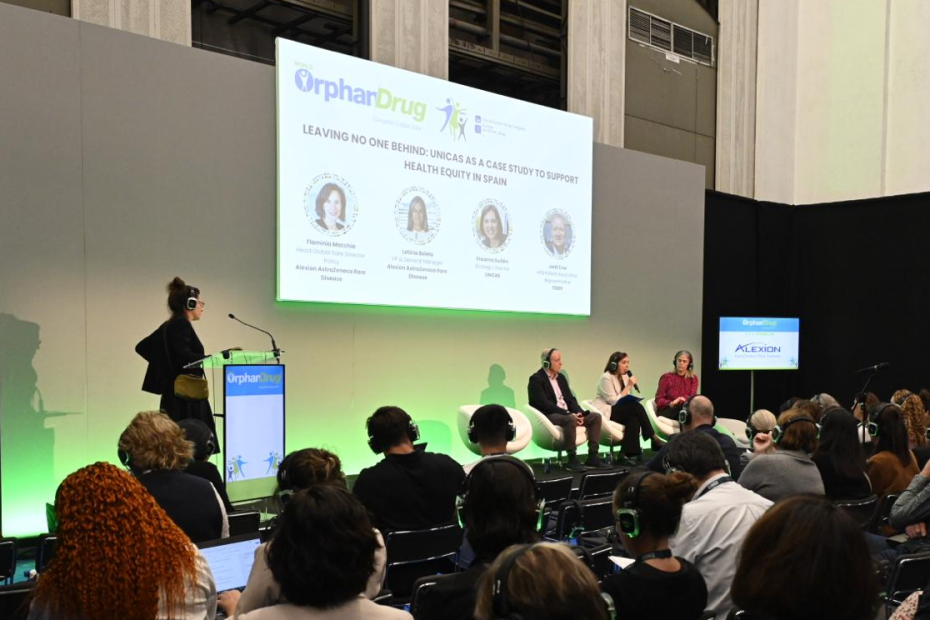The World Orphan Drug Congress, a world-renowned event in the field of orphan drugs and rare diseases, was the setting in which the Únicas Project was presented. This initiative, supported by Alexion, AstraZeneca Rare Disease, seeks to address the multiple needs of pediatric patients who…
He World Orphan Drug Congressa world-renowned event in the field of orphan drugs and rare diseases, was the setting in which the Unique Project. This initiative, supported by Alexion, AstraZeneca Rare Diseaseseeks to address the multiple needs of pediatric patients suffering from rare diseases, a field that has been historically neglected. In this context, the focus is on the centrality of the patient, the reduction of diagnosis time and the promotion of equitable access to health.
The context of rare diseases
Worldwide, about 400 million of people live with a rare disease, of which 3 million They are located in Spain. These conditions affect approximately 8% of the population, with a considerable number of them being children. There are around 7,000 rare diseases known, but more than 90% of these do not have a treatment available. This scenario is bleak, given that many patients face long waits to obtain a proper diagnosis; The average in Spain is 4 years, and 20% of patients can wait up to 10 years or more.
The situation becomes even more complicated when we consider that 50% of patients still do not have a diagnosis. This scenario reflects an urgent need to improve research and development of treatments for these pathologies, which has led to the emergence of initiatives such as the Únicas Project.
“We need to know what the current situation is. There are many difficulties in meeting the needs of patients and families. Institutional support is needed”he pointed out Jordi Cruz, representative of the Spanish Federation of Rare Diseases (FEDER).
The Unique Network
The Únicas Network, named after the uniqueness of each patient, is an ambitious project that seeks to create an ecosystem of collaboration between various actors in the field of health. This network is made up of 30 hospital centers throughout Spain and is coordinated by the Ministry of Health and the autonomous governments. The purpose of the Network is to guarantee that children with rare pathologies have access to the best treatments, regardless of their place of residence.
The Hospital Sant Joan de Déu Barcelona will be established as the promoting center of this initiative, which will begin to operate at the end of 2025. During the round table Leaving no one behindthe importance of this approach was explained: “Únicas is a transformative project that requires all actors, and has collaboration as the main factor”he stated Encarna Guillén, Strategic Director of the Project and president of the AEGH.
Patient centrality and health equity
One of the pillars of the Únicas Project is the patient centralitywhich involves not only improving medical care, but also empowering patients and their families in their health process. Inequity in health care is a critical issue in Spain, where there are 17 health services different in each Autonomous Community, which can lead to significant variations in access to diagnoses and treatments.
“In Spain, the situation of rare diseases is a reflection of inequality. We need a system that offers quality care, regardless of place of residence”declared Leticia Beleta, VP & General Manager of Alexion in Spain and Portugal. “We know that innovating is not enough; the medicine must reach the patient”he added.
The Únicas Project not only aims to shorten diagnosis times, but also to ensure that treatments are accessible to all patients, regardless of their geographical location. “Committing to ensuring that each patient receives the care they need is essential”Beleta stressed.
Future impact of the project
The implementation of a telemedicine model and the creation of a digital platform are key components of the Únicas Project. These tools are designed to facilitate remote healthcare and improve access to relevant information for patients and families.
The network also aims to generate a significant impact in the field of research, encouraging the pharmaceutical industry to develop new treatments for rare diseases. “We need to generate a high scientific production capacity that attracts the industry”remarked Encarna Guillén.
With a focus on education and the sensitizationthe Únicas Project also seeks to improve the quality of life of patients. “Personal autonomy is key. We want to empower patients and their families so that they can have a better experience in their treatment”explained Jordi Cruz.
The Únicas project represents a significant advance in the care of rare diseases in Spain. Through collaboration and commitment to equity, this initiative promises transform the lives of thousands of patients and their families. The centrality of the patient, improved access to treatments and reduced diagnosis times are just some of the expected benefits.
“This initiative is linked to other national projects that consider equity as a key aspect”concluded Encarna Guillén. The need for work together to address the challenges faced by patients with rare diseases has never been more urgent.
Unique, therefore, is not only a success story in the care of rare diseases, but also a source of inspiration for future initiatives in the field of health, where collaboration and focus on the patient are fundamental for change. .
“Health equity is a romantic idea in an idyllic world; I hope it inspires us all to work towards a reality in which all diseases have treatment”said Leticia Beleta.
